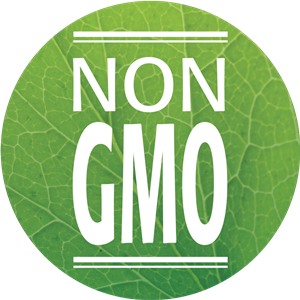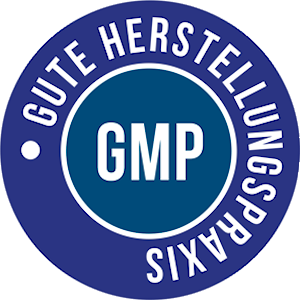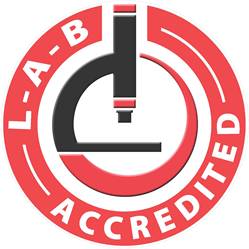
 Homocystein ist eine schwefelhaltige Aminosäure, die als Zwischenprodukt im Stoffwechsel des Menschen entsteht. Homocystein entsteht als Ergebnis der normalen Verstoffwechslung von Methionin, welches durch den Verzehr von Lebensmitteln aufgenommen wird. Erhöhte Homocysteinwerte werden mit Erkrankungen der Herzkranzgefäße (1) sowie insbesondere mit Schlaganfällen(2), neurologischen Krankheiten(3-4), Osteoporose(5) und Störungen der Fortpflanzungsfähigkeit (6-9) in Verbindung gebracht.
Homocystein ist eine schwefelhaltige Aminosäure, die als Zwischenprodukt im Stoffwechsel des Menschen entsteht. Homocystein entsteht als Ergebnis der normalen Verstoffwechslung von Methionin, welches durch den Verzehr von Lebensmitteln aufgenommen wird. Erhöhte Homocysteinwerte werden mit Erkrankungen der Herzkranzgefäße (1) sowie insbesondere mit Schlaganfällen(2), neurologischen Krankheiten(3-4), Osteoporose(5) und Störungen der Fortpflanzungsfähigkeit (6-9) in Verbindung gebracht.
Folgende Faktoren können einen erhöhten Homocystein-Spiegel im Blut erklären:
- genetische Faktoren
- mangelhafte Aufnahme von Folsäure, Vitamin B6 oder Vitamin B12 über die Nahrung
- Nieren- oder Leberinsuffizienz, Hypothyreose (Schilddrüsenunterfunktion), Neoplasie etc.
- Medikamente oder Giftstoffe (übermäßiger Konsum von Kaffee und/oder Alkohol, Tabak etc.)
- Verzehr von Lebensmitteln tierischen Ursprungs, die den Spiegel der Cholesterinoxide (Oxysterol) im Blut erhöhen. Fleisch liefert viel Methionin, aus dem Homocystein gebildet wird
Homocysteinreduzierende Wirkstoffe sind Betain(12,13), Cholin(14-18), die Vitamine B9 (Folat) (21-23), B6(24-28) und B12(19-20), sowie Zink(29-30).
Eine Studie mit Personen, die an Alzheimer erkrankt sind, zeigte, dass der Konsum eines Getränks, das reich an Antioxidantien ist (Apfel, Zitrone oder Grüntee) und B-Vitamine sowie Vitamin C enthält, zur Reduzierung der Homocystein-Konzentration im Blut beiträgt (im Vergleich zu einem Placebo, das keine Wirkung zeigte). Diese kleine, acht Monate dauernde Studie wurde mit 48 Personen durchgeführt, von denen 24 den Saft tranken, während den anderen 24 ein Placebo verabreicht wurde.(10)
Homocystein Balance von Nahani kombiniert Betain, Cholin, Folat, Vitamin B6 und Vitamin B12, welche zu einem normalen Homocystein-Stoffwechsel beitragen und ist mit Zink und Inositol abgerundet. Bis Ende Dezember 2019 ist dieses Produkt zum Einführungspreis 15 % günstiger.
Literatur: 1. Wald, D. S., Law, M., & Morris, J. K. (2002). Homocysteine and cardiovascular disease: evidence on causality from a meta-analysis. Bmj, 325(7374), 1202. // 2. Hoque, M. M., Rahman, M. Z., & Rahman, M. R. (2008). Role of homocysteine in cerebrovascular disease. Mymensingh medical journal: MMJ, 17(2 Suppl), 39-42. // 3. Miwa, K., Tanaka, M., Okazaki, S., Yagita, Y., Sakaguchi, M., Mochizuki, H., & Kitagawa, K. (2016). Increased total homocysteine levels predict the risk of incident dementia independent of cerebral small-vessel diseases and vascular risk factors. Journal of Alzheimer's Disease, 49(2), 503-513. // 4. Tan, B., Venketasubramanian, N., Vrooman, H., Cheng, C. Y., Wong, T. Y., Ikram, M. K., ... & Hilal, S. (2018). Homocysteine and cerebral atrophy: the Epidemiology of Dementia in Singapore Study. Journal of Alzheimer's Disease, 62(2), 877-885. // 5. Böhm, U. (2011). Prävention und Therapie der Osteoporose mit Mikronährstoffen. Erfahrungsheilkunde, 60(02), 84-90. // 6. Maharjan, P., & Hong, P. D. (2018). The Effects of Plasma Homocysteine in PCOS Women: A Review. Open Journal of Obstetrics and Gynecology, 8(01), 39. // 7. Forges, T., Monnier-Barbarino, P., Alberto, J. M., Gueant-Rodriguez, R. M., Daval, J. L., & Gueant, J. L. (2007). Impact of folate and homocysteine metabolism on human reproductive health. Human reproduction update, 13(3), 225-238. // 8. Del, A. B., Maruotti, G., Fulgieri, A. M., Celeste, T., Lombardi, L., Amato, N. A., & Pietropaolo, F. (2004). Recurrent spontaneous miscarriages and hyperhomocysteinemia. Minerva ginecologica, 56(5), 379-383. // 9. Chakraborty, P., Goswami, S. K., Rajani, S., Sharma, S., Kabir, S. N., Chakravarty, B., & Jana, K. (2013). Recurrent pregnancy loss in polycystic ovary syndrome: role of hyperhomocysteinemia and insulin resistance. PLoS One, 8(5), e64446. 10. Morillas-Ruiz, J. M., Rubio-Perez, J. M., Albaladejo, M. D., Zafrilla, P., Parra, S., & Vidal-Guevara, M. L. (2010). Effect of an antioxidant drink on homocysteine levels in Alzheimer's patients. Journal of the neurological sciences, 299(1-2), 175- 178. 12. Yago, M. R., Frymoyer, A. R., Smelick, G. S., Frassetto, L. A., Budha, N. R., Dresser, M. J., ... & Benet, L. Z. (2013). Gastric reacidification with betaine HCl in healthy volunteers with rabeprazole-induced hypochlorhydria. Molecular pharmaceutics, 10(11), 4032-4037. 13. Day, C. R., & Kempson, S. A. (2016). Betaine chemistry, roles, and potential use in liver disease. Biochimica et Biophysica Acta (BBA)-General Subjects, 1860(6), 1098-1106. 14. Nygård, O., Refsum, H., Ueland, P. M., & Vollset, S. E. (1998). Major lifestyle determinants of plasma total homocysteine distribution: the Hordaland Homocysteine Study. The American journal of clinical nutrition, 67(2), 263-270. 15. Wang, X., Qin, X., Demirtas, H., Li, J., Mao, G., Huo, Y., ... & Xu, X. (2007). Efficacy of folic acid supplementation in stroke prevention: a meta-analysis. The Lancet, 369(9576), 1876-1882. 16. Ntaios, G., Savopoulos, C., Karamitsos, D., Economou, I., Destanis, E., Chryssogonidis, I., ... & Grekas, D. (2010). The effect of folic acid supplementation on carotid intima-media thickness in patients with cardiovascular risk: a randomized, placebo-controlled trial. International journal of cardiology, 143(1), 16-19. 17. Homocysteine Lowering Trialists' Collaboration. (1998). Lowering blood homocysteine with folic acid based supplements: meta-analysis of randomised trials. Bmj, 316(7135), 894-898. 18. Quinlivan, E. P., McPartlin, J., McNulty, H., Ward, M., Strain, J. J., Weir, D. G., & Scott, J. M. (2002). Importance of both folic acid and vitamin B12 in reduction of risk of vascular disease. The Lancet, 359(9302), 227-228. 19. Vermeulen, E. G., Stehouwer, C. D., Twisk, J. W., Van den Berg, M., De Jong, S. C., Mackaay, A. J., ... & Rauwerda, J. A. (2000). Effect of homocysteine-lowering treatment with folic acid plus vitamin B6 on progression of subclinical atherosclerosis: a randomised, placebo-controlled trial. The Lancet, 355(9203), 517-522. 20. Smith, A. D., Smith, S. M., De Jager, C. A., Whitbread, P., Johnston, C., Agacinski, G., ... & Refsum, H. (2010). Homocysteine-lowering by B vitamins slows the rate of accelerated brain atrophy in mild cognitive impairment: a randomized controlled trial. PloS one, 5(9), e12244. 21. Almeida, O. P., Marsh, K., Alfonso, H., Flicker, L., Davis, T. M., & Hankey, G. J. (2010). B‐vitamins reduce the long‐term risk of depression after stroke: the VITATOPS‐DEP trial. Annals of neurology, 68(4), 503-510. 22. Till, U., Röhl, P., Jentsch, A., Till, H., Müller, A., Bellstedt, K., ... & Herrmann, F. H. (2005). Decrease of carotid intima-media thickness in patients at risk to cerebral ischemia after supplementation with folic acid, vitamins B6 and B12. Atherosclerosis, 181(1), 131-135. 23. McKinley, M. C., McNulty, H., McPartlin, J., Strain, J. J., Pentieva, K., Ward, M., ... & Scott, J. M. (2001). Low-dose vitamin B-6 effectively lowers fasting plasma homocysteine in healthy elderly persons who are folate and riboflavin replete. The American journal of clinical nutrition, 73(4), 759-764. 24. Kelly, P. J., Shih, V. E., Kistler, J. P., Barron, M., Lee, H., Mandell, R., & Furie, K. L. (2003). Low vitamin B6 but not homocyst (e) ine is associated with increased risk of stroke and transient ischemic attack in the era of folic acid grain fortification. Stroke, 34(6), e51-e54. 25. Rimm, E. B., Willett, W. C., Hu, F. B., Sampson, L., Colditz, G. A., Manson, J. E., ... & Stampfer, M. J. (1998). Folate and vitamin B6 from diet and supplements in relation to risk of coronary heart disease among women. Jama, 279(5), 359-364. 26. Kelly, P. J., Kistler, J. P., Shih, V. E., Mandell, R., Atassi, N., Barron, M., ... & Furie, K. L. (2004). Inflammation, homocysteine, and vitamin B6 status after ischemic stroke. Stroke, 35(1), 12-15. 27. Saposnik, G., Ray, J. G., Sheridan, P., McQueen, M., Lonn, E., & HOPE 2 Investigators. (2009). Homocysteine-lowering therapy and stroke risk, severity, and disability: additional findings from the HOPE 2 trial. Stroke, 40(4), 1365-1372. 28. Wang, X., Qin, X., Demirtas, H., Li, J., Mao, G., Huo, Y., ... & Xu, X. (2007). Efficacy of folic acid supplementation in stroke prevention: a meta-analysis. The Lancet, 369(9576), 1876-1882. 29. Colodny, L., & Hoffman, R. L. (1998). Inositol-clinical applications for exogenous use. Alternative Medicine Review, 3, 432-447. 30. Unfer, V., Carlomagno, G., Dante, G., & Facchinetti, F. (2012). Effects of myo-inositol in women with PCOS: a systematic review of randomized controlled trials. Gynecological Endocrinology, 28(7), 509-515.














